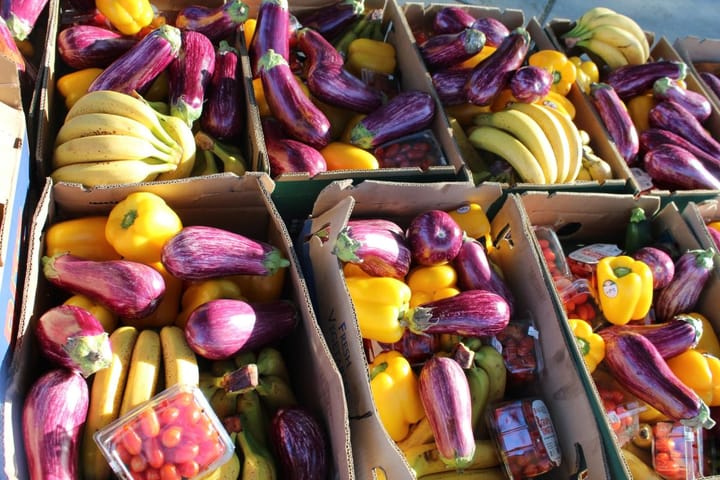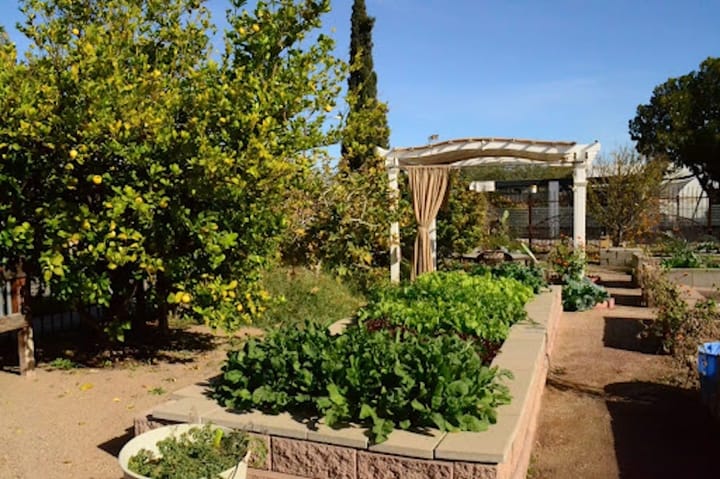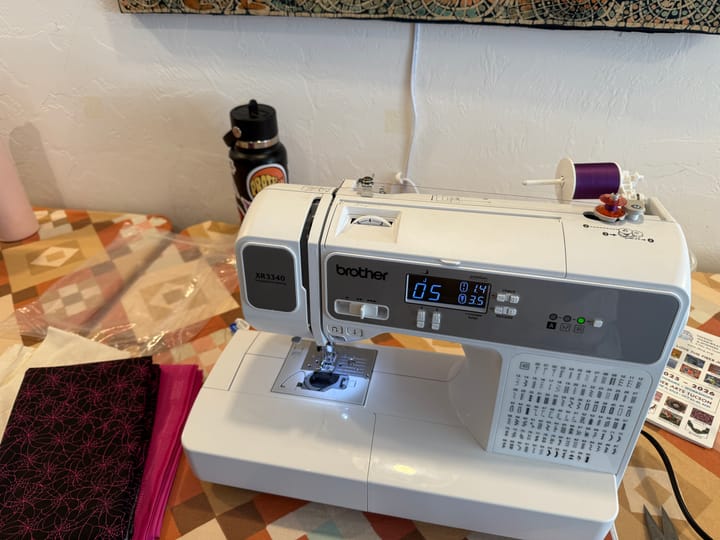Tucson neighbors tackle food insecurity one pantry at a time
Responding to growing food insecurity in Tucson, local residents have launched grassroots pantries to provide free meals, supplies, and support to their communities.
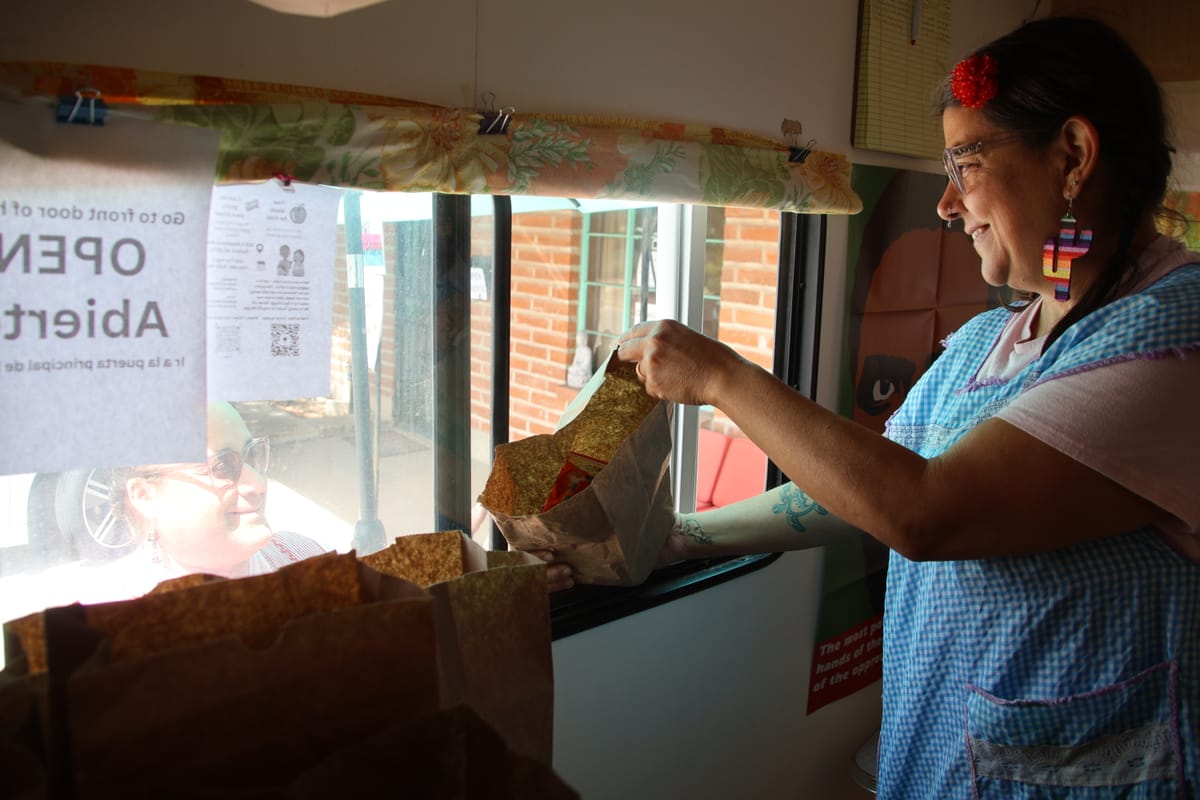
Concerned about the short time allotted for school-provided summer meals, Alex Bell and Leah Dardis started a mobile pantry to provide reliable food for local kids and soon realized the need was much greater than expected.
The couple launched the Queer Girls' Pantry for Kids out of their camper at the beginning of the month, serving to-go breakfast and lunch to local children.
Bell witnessed the need firsthand while volunteering with nonprofits such as GAP Ministries and Habitat for Humanity.
“We volunteered in a church doing tutoring. The kids, they would bring homework, and then we'd feed them, and you catch them putting food in (their backpacks),” Bell said. “There was this little kid, he's probably 10, but really short for his age. Really, really skinny. I asked, ‘Did you eat 10 pieces of pizza?’ And he said, ‘They're in my backpack’ … He was trying to feed his brothers.”
Both Bell and Dardis have experienced food insecurity, first as youth and later as families of their own.
“When we were in our 20s, and we had our children and our family, there were times where it was hard to make money,” Dardis said. "We know what it is to be a young family in that way, our own path with food insecurity.”
That’s why, when Dardis feared the 30-minute distribution window for Tucson Unified School District’s summer meal program might not be enough time for all students in need to receive meals, they decided to help fill the gaps.

They funded the pantry themselves and used social media and Craigslist to spread the word.
One day, five different families arrived looking for food.
“We had a family that had six kids,” Dardis said. “(The mom) and the spouse came up and (said), ‘Our SNAP benefits haven't been working for the last two weeks. We don't know what's going on. We've been without food.’”
Community members weren’t just seeking meals for their children; they needed food for themselves too, including an elderly man who lost his Medicaid coverage, local fast-food workers, and a man from Douglas seeking food for his ex-wife and children.
“In addition to driving around and picking up things that he could sell on the side to support his family, (he) got food for them, too,” Dardis said.
The women quickly noticed a significant gap in local food access, and the surge in demand since launching their pantry has motivated them to expand even further.
“Our short-term plan was to fill the gap for the summer program,” Dardis said. “But that doesn't mean that food insecurity stops when school starts. It just changes.”
They hope to establish food pantries in schools, reaching marginalized communities that may have fewer opportunities for food access. They also hope to create simple meal kits from ingredients found in dollar stores and a volunteer program for community members to aid in food distribution.
“We have to help each other. This world is too hard. People can't go hungry.”
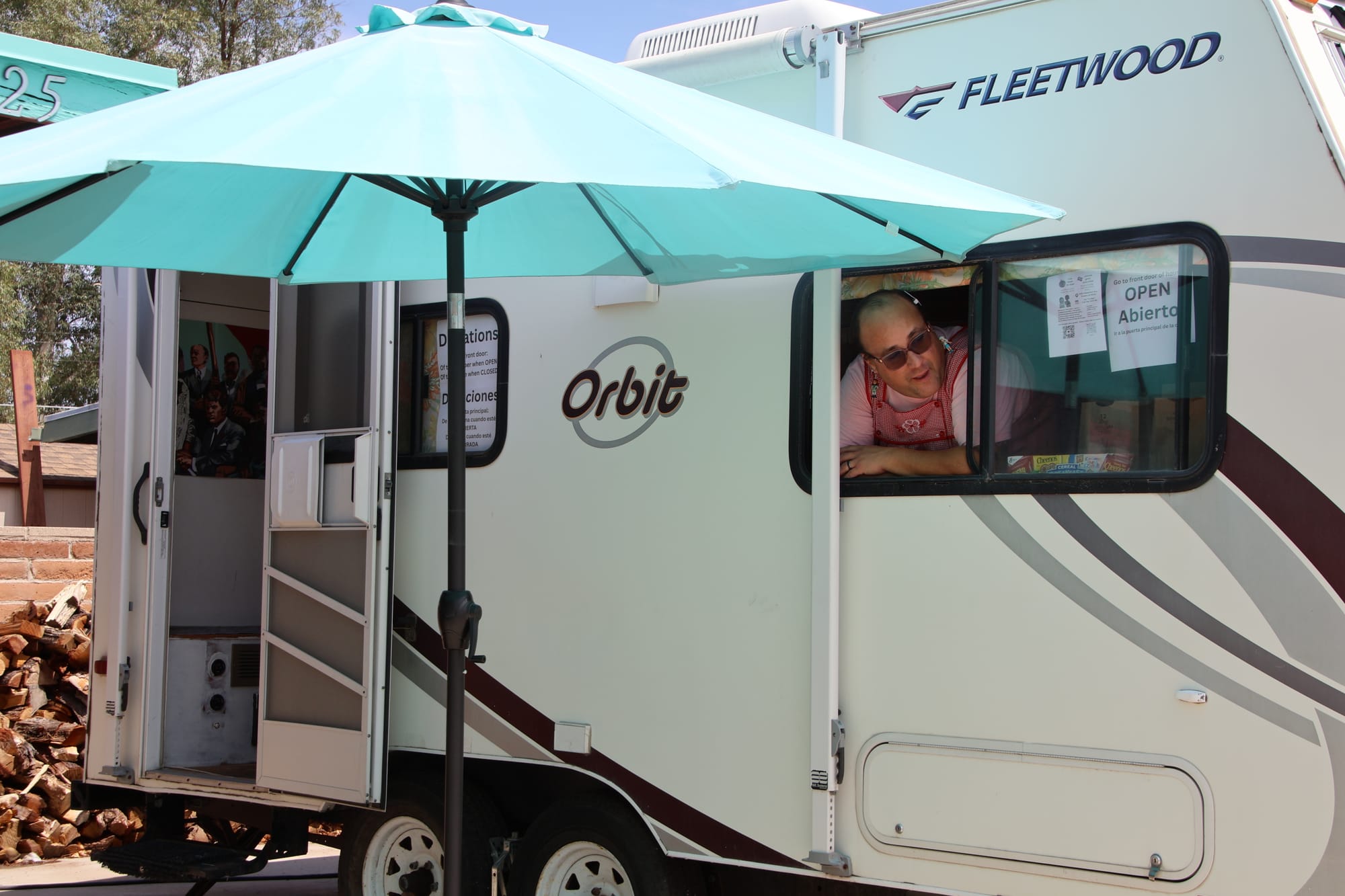
The growing popularity of food pantries has accompanied a 2.7% increase in food prices over the last year. And with federal budget cuts significantly impacting SNAP benefits, traditional food banks are preparing for not only fiscal strain but unprecedented demand.
When Izzy Collins repurposed a broken bookshelf into a sidewalk pantry, he didn’t expect it to spark a grassroots movement feeding Tucsonans in crisis.
“One night, a bookcase in my living room decided to collapse. I took all the wood and reconstructed it,” Collins said. “It had a piece of notebook paper that said, ‘Free Pantry and Library. Take what you need, leave what you can.’”
Izzy’s Kitchen, located at 4721 E. First Street, is part of a global mutual aid movement focused on addressing food and resource insecurity through community-led solutions.
His ambition to establish a free pantry, however, has not come without adversity. Three days after setting up the bookshelf, his pantry was vandalized.
“Somebody drove onto the property. They ran (the shelf) over, backed up, and instantly left,” Collins said. “(When) I came home, it was just a pile of wood.”
While Collins was evaluating the situation, two unhoused men approached and asked if they could take the crushed pantry items. In that moment, he realized the need for food far outweighed the setback.
“I (had) to keep this going,” he said.
Collins, a full-time healthcare worker, doesn’t fit the mold of a typical mutual aid organizer.
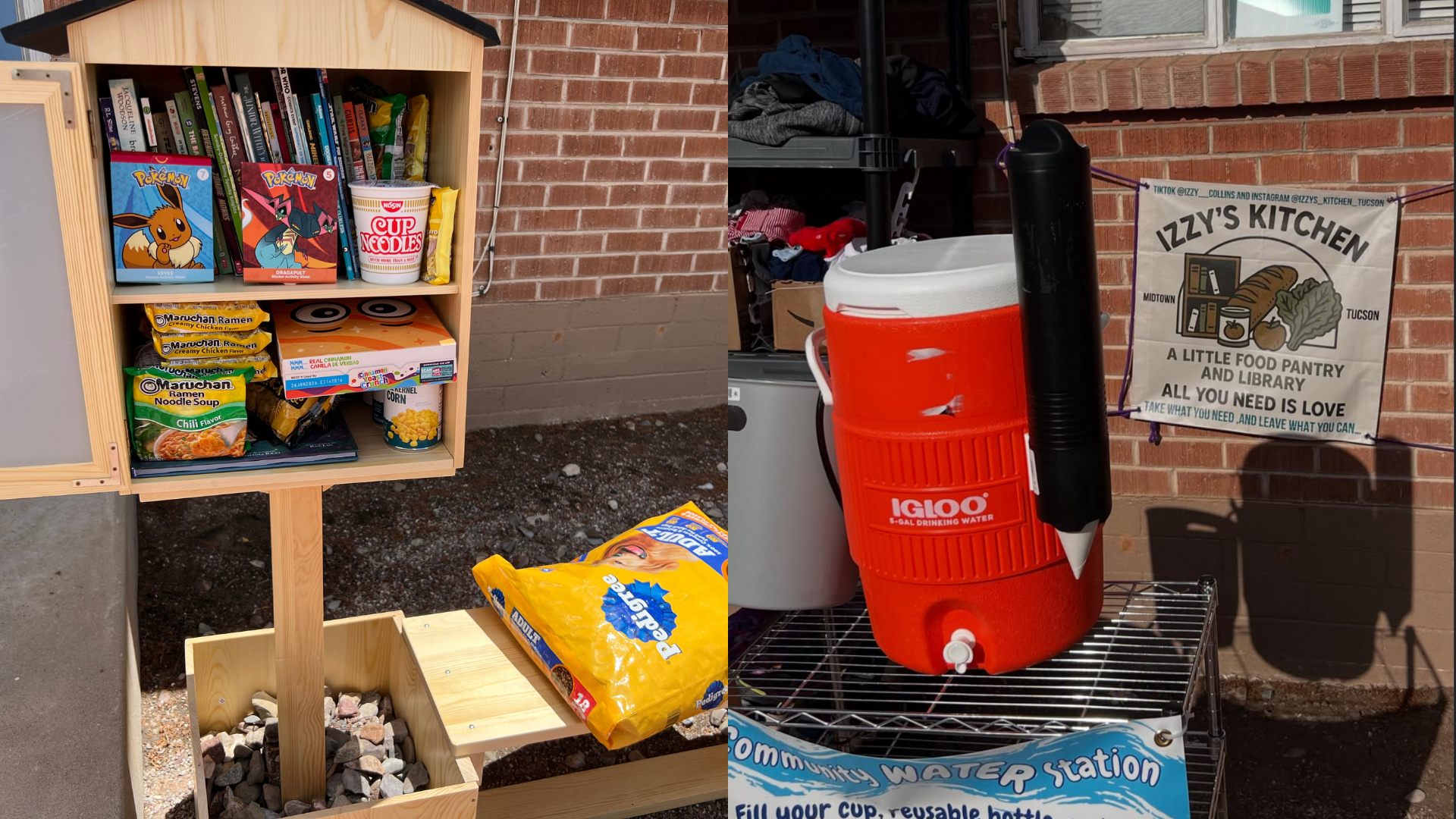
With no background in aid distribution, his efforts began on TikTok, where he showed followers how to make simple, affordable meals using minimal equipment and low-cost ingredients.
Using his platform, Collins spoke about the vandalism and his desire to be a hub for community members in need.
That’s when the packages started rolling in.
“A subscriber from Maine sent me our (existing) food pantry with a bench and the wooden structure, completely out of her pocket,” Collins said.
Every day, a new package would arrive or someone would drop something off at the pantry, which Collins said is never empty.
“This was supposed to be little,” he said. “It was supposed to be a couple books and some cans, and it took off overnight.”
As his visibility has grown, Collins has used his platform to address a broader range of community needs.
With help from his head of marketing, Alyssa Jade, Collins hosted a variety show last month that raised $1,000 for The Trevor Project. This month, the team gave away 35 backpacks filled with school supplies to children in need.
The pantry has also expanded its inventory to include naloxone, hygiene items, and pet food.
“We've come together with the other mutual aid groups to fill everybody else's gaps,” Collins said. “Seeing the community come together is what keeps me wanting to do it more.”
Topacio “Topaz” Servellon is a freelance journalist based in Tucson. Contact them at topacioserve@gmail.com.
Tucson Spotlight is a community-based newsroom that provides paid opportunities for students and rising journalists in Southern Arizona. Please consider supporting our work with a tax-deductible donation.

